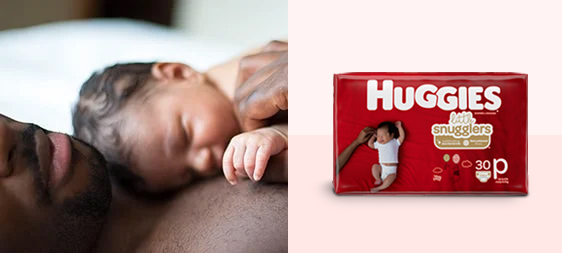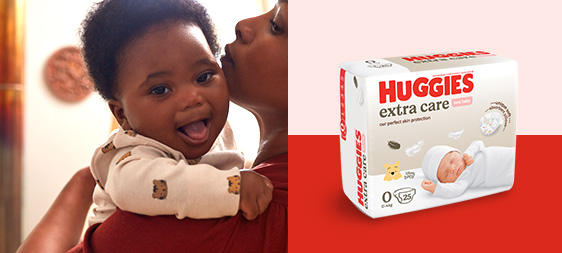Baby names and circumcision
As the time to deliver your baby approaches, there are lots of important decisions you’ll be faced with. You can make some of the decisions about what your baby needs in advance, while others may not go according to plan. But it’s a good idea to take time to think about some of these things and talk them over with your partner.
Circumcision for boys
In South Africa, it is unusual for boys to be circumcised unless it is a part of their family’s religious or cultural tradition, and elective circumcision is not available in most public hospitals or children’s hospitals.
The South African Medical Association (SAMA), the American Acdemy of Pediatrics (AAP) and the Royal College of Surgeons (RCS) all recommend that boys should not be routinely circumcised.
Fathers who have been circumcised are often concerned that their sons will have a different looking penis; however circumcision is now very much a minority procedure except in certain religious communities and is more likely to mark boys apart from their peers.
Circumcision is a personal decision that some parents will consider. You are advised to talk to your doctor about the risks and benefits of circumcision before weighing up the options available to you.
If you have considered the arguments on both sides of the debate and still wish to proceed with circumcision, it is recommended that the operation be done under a general anaesthetic by an experienced surgeon, that adequate pain relief is provided, and that it should be performed only if the baby is healthy.
Retaining the foreskin is helpful for newborn babies, as the foreskin protects the sensitive glans of the penis suffering from nappy rash.
Occasionally circumcision is recommended for medical reasons including recurrent infections or abnormal tightness of the foreskin, however this is rare and most foreskin problems can be treated without the need for an operation.
Although there are now far fewer doctors willing to perform the surgery, you should be able to arrange a referral to a qualified surgeon through your family doctor if you choose to go ahead with the procedure.
Naming your baby
This is a really big decision that can be an agonising and difficult choice for many parents – while it’s a snap for others.
When your baby is born, you must register their birth within 60 days, so you do have a few weeks after the birth to choose your baby’s name.
Some parents choose names for their child as soon as they find out they are expecting – or even before. Others wait to choose a name for a few hours, days or even weeks after their baby arrives, so that they can find a name they feel suits the child or because they just can’t decide!
You will also need to discuss your child’s surname. Traditionally, children have taken their father’s surname and most married parents still automatically choose this option; but you don’t have to follow the crowd.
A child born to unmarried parents will be registered with the mother’s surname unless both parents agree to the child being registered with the father’s surname.
Some parents choose to give their child a hyphenated combination of both of their surnames. This is fine if the names are fairly short, easy to spell and sound good together although do beware of inflicting a lifelong burden on your child by loading them up with a double-barrelled spelling challenge.
There is also a long history in some English and European cultures of bestowing a mother’s maiden name as her child’s middle name, which may be a better alternative to hyphenation.
If you choose hyphenation, there are no rules about what name goes first, although – because of the tradition of a mother’s maiden name being used as a middle name – often the mother’s name will be the first. Do try out each combination and choose the one that sounds best.
There are a number of things you need to consider when choosing your child’s first name. First, you need to remember that this is the name that your child will probably have for life (unless they hate it so much they change it!)
Make sure the name you give your child will last their lifetime; it should suit a baby, a child, a teenager, an adult and a very old person.
Do you want a different and unusual name or a traditional, old-fashioned name – or would you prefer a name that is more popular and will “fit in” with his or her peers?
Think carefully before choosing an unusual spelling or pronunciation for your child’s name; while it makes your child’s name stand out now, it may also mean a lifetime of spelling-out for your child.
Do you have close family members or friends with children who have certain names that you like – does it matter if your child has the same name?
Look up the name you have chosen and see if you like the meaning and origins of the name; do beware of their initials spelling-out something inappropriate or possibilities for unpleasant nicknames or short versions that might lead to your child being teased.
When you choose your baby’s first name, try it out with your chosen surname and middle name.
Some couples find it really difficult to choose a name that they both agree on. Try to find a strategy to resolve the name debate so that you both feel happy about the outcome. For example, maybe you could both make as long a list as possible of names that you can live with – then swap lists and each choose a name from the other’s list.
Do your best to choose a good name for your child – and rest assured that whatever name you choose for your child, within a few days it is likely to suit them completely.
![Childbirth - Labour - prea]paring for baby](www.huggies.co.za/-/media/Project/HuggiesSA/Images/Articles/Newborn/Childbirth/Preparing-For-Baby/Important-Decisions/Images/ImportantDecisions_Desktop)
![Childbirth - Labour - prea]paring for baby](www.huggies.co.za/-/media/Project/HuggiesSA/Images/Articles/Newborn/Childbirth/Preparing-For-Baby/Important-Decisions/Images/ImportantDecisions_Mobile)















